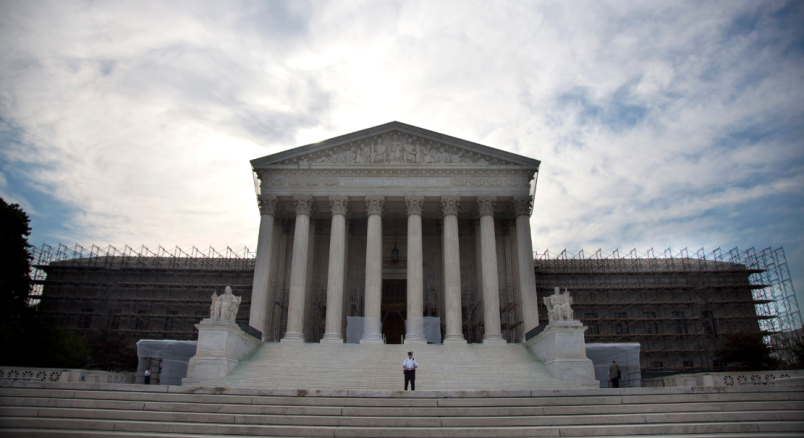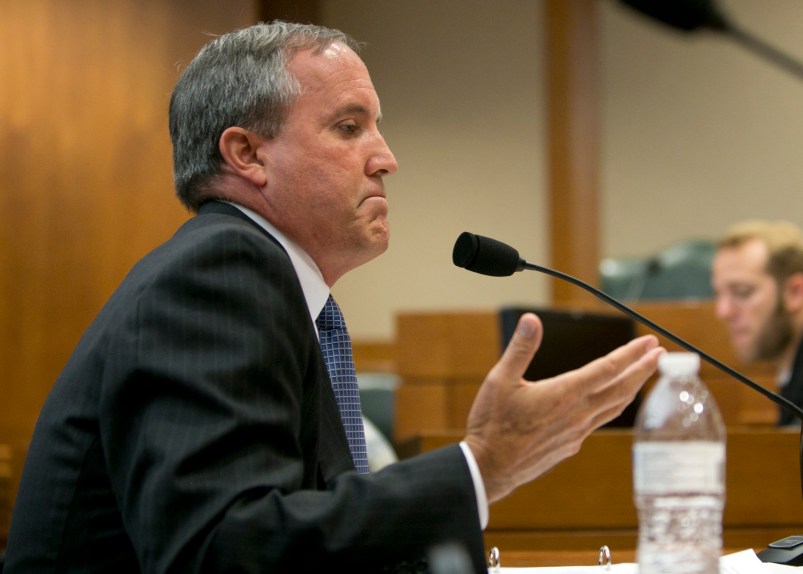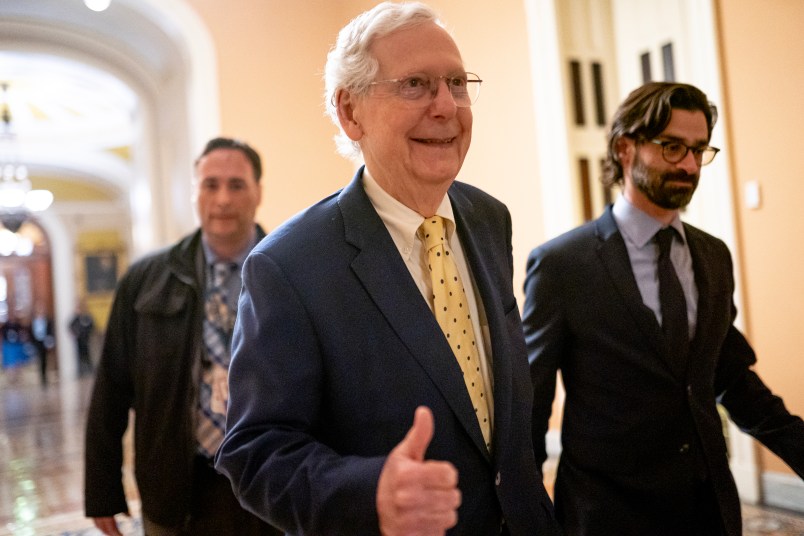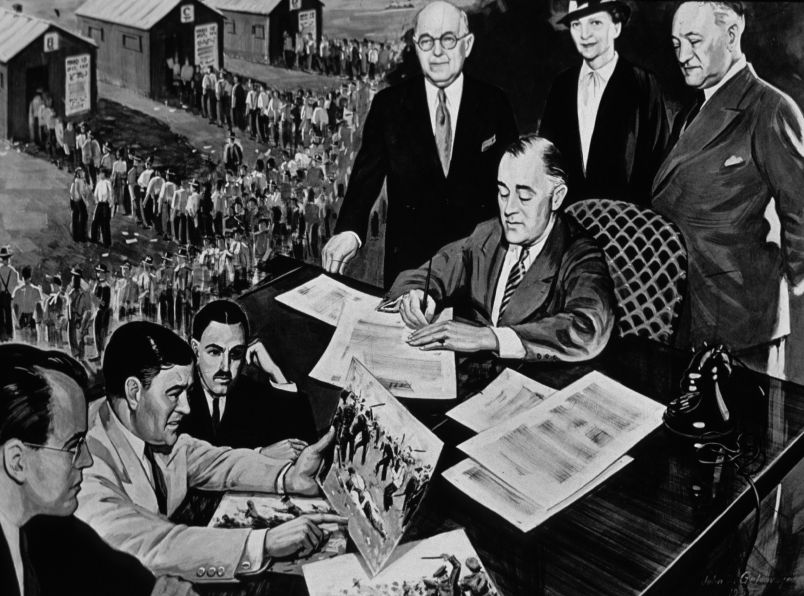For decades, as private sector unionism has steadily diminished, public sector unions have grown. Traditionally, public sector unions have been easier to organize because the employer—federal, state, and local governments—is in a poor position to bust unions. The government cannot secretly spend millions on anti-union consultants, violate workers’ rights, and discipline or fire workers for their union sympathies. The result is that a third of public sector workers are currently members of a union, whereas only six percent of their private sector counterparts are similarly union members.
Now the Supreme Court has accepted for review a case, Friedrichs v. California Teachers Association, brought by the rightwing Center for Individual Rights, that takes direct aim at public sector unions. In the case, a handful of California teachers argue that mandatory union fees violates their First Amendment rights. If successful, it would serve to sap union funds, further silence workers’ voices on the job and in the political arena, and would require unions to make radical changes to the ways they expend resources.
There are two issues presented to the Supreme Court in Friedrichs, both of which would significantly change the way public sector unions operate. Both issues deal with the question of what union members must pay for. The issue that is getting less attention is whether the current model—where union members who don’t wish to pay for the union’s political and other activities can opt out—is unconstitutional. The case seeks to turn the current model on its head, and require union members to opt in to such fees.
The natural effect of such a new rule would be that unions would have to spend a lot more resources to raise political funds. This may lead some unions to forego big social and political causes and instead focus on the nitty-gritty, bread-and-butter issues affecting its membership. Such a shift inward, where unions do not fight for broad pro-worker policies and issues affecting the poor and middle class, could do great damage to the public perception of unions. Rather than being seen as a force for social good, unions would start to look more like private membership organizations that fight only for their members’ narrow interests.
But the larger, more far-reaching issue before the Court in Friedrichs v. California Teachers Association is whether the longstanding use of fair share fees, where all union members must pay for the costs of collective bargaining and contract administration, violates the First Amendment. If the Friedrichs plaintiffs are successful, the Supreme Court could place all public sector employees under a so-called “right to work” rule, where unions must represent all workers, but workers do not need to pay for this representation. The burden will then be on unions to shift more of their resources to constantly convincing their membership to choose to pay their dues. Public sector unions will be like public radio, having to spend more and more time on pledge drives, espousing a message of fairness and responsibility, in order to encourage workers to pay their fair share.
But unlike NPR, labor cannot simply cut off the program for a few weeks a season to illustrate what life would be like without them.
Labor’s political clout has been declining for decades—illustrated perfectly in its inability to pass positive labor law reform even when Democrats control Congress and the Presidency—however, if the Supreme Court rules in favor of the plaintiffs in either of these issues before it, labor’s voice would be further silenced. In this post-Citizens United world, unions are already mismatched by deeper-pocketed corporations and billionaires. Seattle University School of Law professor Charlotte Garden explained in an email interview that Friedrichs would further limit unions’ abilities to spend on get-out-the-vote efforts and issue advocacy because unions may have to repurpose dues paid by some workers to make up for those that decide to free ride.
Perhaps even more problematic for unions than the loss of some portion of its dues is the effects the Supreme Court decision could have on solidarity among the workers. Labor’s strength comes from the solidarity of its membership, from their ability to speak with one voice, and their willingness to stand together in the face of employer intransigence. The “right to work” model promoted by the plaintiffs in Friedrichs seeks to fracture the unionized workplace by promoting divisions among workers, and ultimately weakening labor.
The divisions that Friedrichs may cause will not just be felt by public sector workers, but by all Americans. The Supreme Court will be hearing, and likely deciding, Friedrichs just as the parties hold their primaries for the presidency.
This may be the one silver lining in the Supreme Court’s decision to hear Friedrichs next term. Republican candidates like Rand Paul, Scott Walker, and Chris Christie would have already tried to prove their conservative bona fides by rehashing their fights with labor. However, now the Democratic candidates will also have to show labor which side they are on.
Labor has been struggling to stop the bleeding and push pro-worker policies in spite of laws that are stacked against it, trade agreements that don’t value worker rights, a shifting economy, and extreme opposition by well-funded employers. If the Supreme Court imposes “right to work” on all public sector workers, unions will suddenly find themselves struggling to make sure that they’re collecting enough dues to fight these mounting battles.
It won’t be enough for Hillary Clinton, Martin O’Malley or Lincoln Chafee to speak in platitudes about the historical importance of labor or how unions helped secure the eight-hour workday. (Bernie Sanders has never shied away from speaking in favor of labor.) Rather, they will have to put forward real policy proposals that will promote labor and help workers exercise their rights to join a union. In the past few elections, labor has become less and less of an issue. With the Friedrichs case, the Supreme Court has just guaranteed that it will remain front and center throughout the next election.
Moshe Marvit is an attorney and fellow with The Century Foundation and the co-author (with Richard Kahlenberg) of the book Why Labor Organizing Should be a Civil Right.









